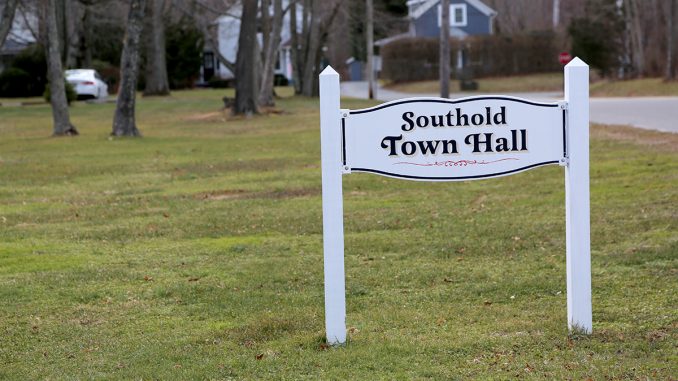
The Southold Town Board approved on Tuesday a local law that would, if passed by voters this November, add a half-percent transfer tax for affordable housing solutions.
The tax would be added to the existing 2% Community Preservation Fund tax on real estate transfers in the five East End towns. It must be passed by referendum, with each town presenting a plan for the funds ahead of the ballot vote.
If adopted, the legislation would also reduce the real estate transfer tax on all transactions of $400,000 or less in Southold Town. The exemption would be increased from $150,000 to $200,000.
Councilwoman Louisa Evans cast the lone vote against the transfer tax, citing an incomplete plan for incoming funds. She said the vote should wait until the details are hammered out and expressed concern about the approaching deadline.
“I feel like we need a plan that people are voting on, not just a concept,” she said, emphasizing that she is not against the transfer tax itself. The Town Board had initially planned to hold off on the vote for another year after missing a June deadline, so that a complete plan for incoming funds could be presented to the public before the transfer tax was put on the ballot.
Some echoed those concerns at a public hearing ahead of the vote. Orient farmer Tom Stevenson said the process seems rushed and the farming community should have “a seat at the table.”
Laurel resident David Levy said that while he’s aware of the affordable housing crisis, the Town Board should delay putting the transfer tax on the ballot.
“Having worked in government for 35 years, with consultants, I’m telling you there is no way you are going to be able to put together a committee, have a plan developed, review the plan and educate the public as to what it contains in 98 days,” he said.
He criticized several other aspects of the legislation as well, including language defining those who would qualify for housing assistance, and high limits on income and sale prices. He added that a buyer can only bring so much money to the table at closing, and the additional taxes would “really [be] coming out of the seller’s pocket.”
Town Supervisor Scott Russell said the town is in a much better position to move forward with the referendum than it was ahead of a presumed deadline in June.
“This plan, if adopted, will let the town take control of its affordable housing program rather than sit back and have developer after developer pitch an idea that is going to hopefully solve our affordable housing program. That’s a recipe that hasn’t worked out well,” he said.
Other participants offered suggestions on legislative language as well, and pointed out that the transfer tax is only one facet of a solution to the housing crisis. Many others expressed support for the legislation, with the consistent refrain: “Don’t let the perfect be the enemy of the good.”
Margaret Steinbugler, a local civic leader, said approximately two-thirds out of a thousand respondents to a recent North Fork survey indicated concern about the affordable housing crisis in Southold Town.
“People recognize townwide that this is a big issue and they are asking the Town Board to work on it,” she said.
Mattituck resident Jane Flinter shared anecdotes about locals struggling to continue to live on the North Fork. “That is wrong. That is not the community character that my husband and I saw when we moved here 35 years ago,” she said.
“It would be detrimental not to proceed with this,” said Aleksandra Norton, a Fishers Island resident. “Just alone on the island, there is a tremendous need for affordable housing. There’s people on the island who have lived here for generations who are being forced out by having their homes purchased from under them.”
Another Fishers Island resident pointed out that the island has not benefited very much from the Community Preservation Fund and said he hopes if the housing tax goes forward, the island sees “a reasonable response.”
Village of Greenport trustee Mary Bess Phillips and clerk Sylvia Pirillo, who spoke for Mayor George Hubbard, expressed support for the Community Housing Fund and said they look forward to village involvement in the process.
East Hampton, Southampton and Shelter Island are on track for a November referendum. Riverhead will not vote on the tax this year.

